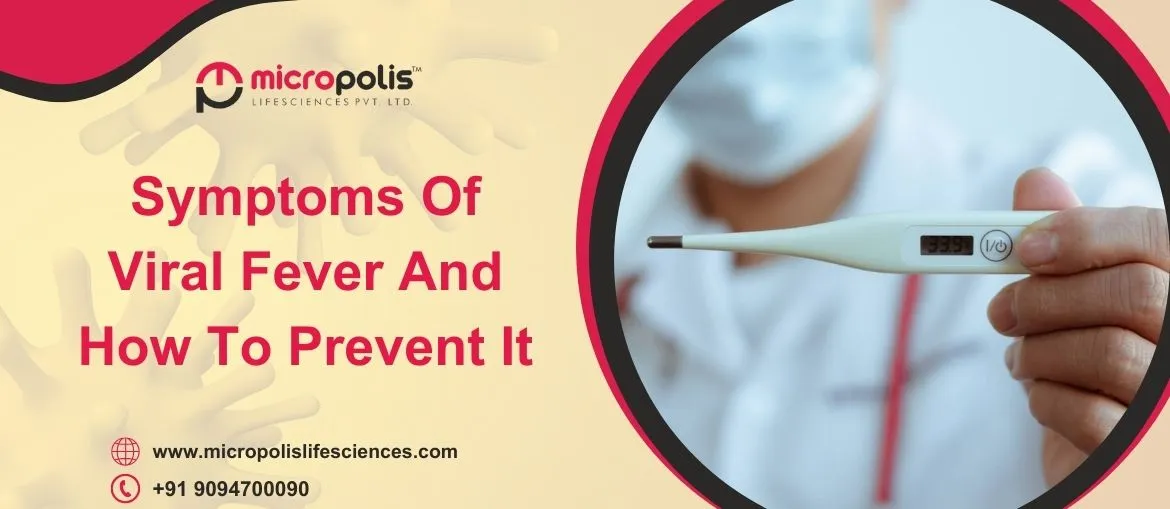Subtotal ₹0.00
In the world of getting sick, there’s something called viral fever, and it’s pretty common. Think of it like an enemy that a lot of people face, but sometimes we don’t fully understand it. So, what’s important is figuring out its signs early and doing things to stop it from causing big problems. Viral fever happens when different tiny things called viruses get into your body, and they can make you feel not-so-great.
These viruses are behind the fever. When they get into your body, your temperature can go up, making you feel uncomfortable. It’s like your body’s way of fighting back against these viruses. Sometimes, along with the fever, you might also feel tired and weak, like your body is working extra hard.
They don’t always cause the same problems. For some people, it’s just a bit of discomfort, while for others, it can get pretty serious. That’s why understanding what might happen is vital. If we know the signs, we can take steps to stay healthy and make sure others around us stay well too.
Fever and Body Discomfort
Viral fever often starts with a rise in body temperature. You might feel hot, and your body could ache, making you feel tired and weak. It’s like your body is signaling that something is not right. Recognizing this early on is important because it helps you take steps to feel better and prevents the virus from causing more trouble.
Breathing Issues and Respiratory Symptoms
Some viruses that cause fever also affect your breathing. You might start coughing, sneezing, or find it hard to breathe. These respiratory symptoms are important to notice, especially because some viruses can spread through the air. If you notice changes in your breathing, it’s essential to get help quickly to make sure you can breathe comfortably.
Gastrointestinal Disturbances
Viral infections can play with your stomach, causing symptoms like nausea, vomiting, and diarrhea. These stomach issues can be uncomfortable, but paying attention to them helps in identifying the virus early. Staying hydrated and taking care of your stomach can make a big difference in feeling better.
Skin Changes and Rashes
Some viral fevers can show up on your skin. You might get rashes, redness, or feel itchy. These skin changes are like signals that your body is fighting off a viral infection. Recognizing these signs on your skin can be important in understanding what’s happening and seeking the right help.
General Weakness and Fatigue
Feeling weak and tired is common with viral fever. It’s your body’s way of telling you to rest and recover. When you have a viral infection, your energy levels can drop, and you might not feel up to your usual activities. Understanding this symptom helps you take it easy and give your body the time it needs to get back to full strength.
How To Prevent It?
Practice Good Hand Hygiene
Wash your hands regularly with soap and water, especially before eating and after being in public places. This simple practice helps remove viruses that may be on your hands, reducing the risk of them entering your body.
Avoid Close Contact with Sick People
If someone around you is unwell, try to keep a safe distance. Viruses that cause fever can spread through respiratory droplets when an infected person coughs or sneezes. By avoiding close contact, you reduce the chances of these droplets reaching you.
Maintain a Clean-Living Environment
Keep your living spaces clean and tidy. Regularly disinfect commonly touched surfaces like doorknobs, light switches, and countertops. This helps eliminate viruses that may linger on surfaces, preventing them from spreading within your home.
Stay Up-to-Date with Vaccinations
Vaccinations can provide protection against specific viruses that cause fever. Keeping up with recommended vaccinations ensures that your immune system is better prepared to fight off these viruses, reducing the likelihood and severity of viral fever.
Practice Respiratory Etiquette
When you cough or sneeze, cover your mouth and nose with a tissue or your elbow. This helps prevent the spread of respiratory droplets containing viruses. Dispose of tissues properly and wash your hands immediately. If you don’t have a tissue, cough, or sneeze into your elbow rather than your hands to avoid contaminating surfaces.
Thus, make sure that you follow all these preventions and even then if you get trapped in this viral fever season, then be sure that you detect all the symptoms on time and take the right medications.




Comments are closed